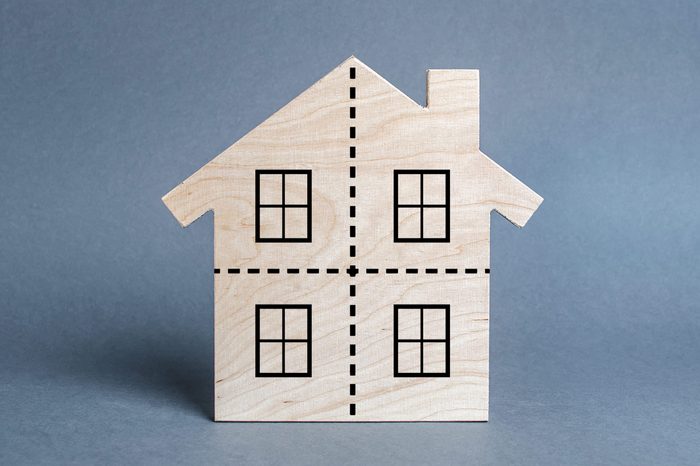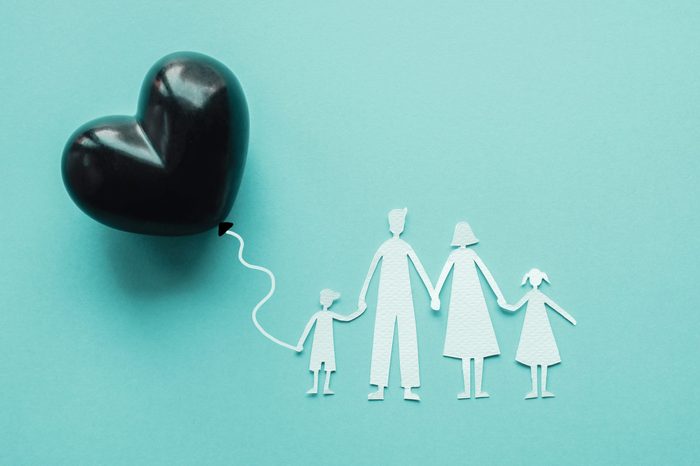
New decade, new rules
The beginning of the year is a great time to reflect on your life: what’s working, what’s not working, and what changes you need to make. For some married couples, this means talking about divorce. Because of this, January is unofficially known as “divorce month.” When you think about it, this makes sense: People don’t want to break the bad news over the holidays, so they wait until the new year to have this discussion with their spouse. So, what can those considering a split expect in 2020? There are many societal factors that can influence a couple’s decision to divorce and how the whole process plays out. Here are 12 trends that may affect you in the upcoming year.

Health care costs
There’s a reason that health care is one of the hottest topics in the 2020 presidential race—it impacts everyone, including divorcing couples. “The payment of health insurance factors into the child-support calculation for cases that are on the guidelines, and is considered part of the children’s expenses for cases that exceed the guidelines,” Nicole Sodoma, managing principal at Sodoma Law, tells Reader’s Digest. “It is also a consideration in a dependent spouse’s needs with regard to alimony. We strongly encourage exploring options, discussing with a benefits counselor, [and] comparing plans and costs to be best advised about what to expect.”
To be clear: The “ex-spouse” isn’t covered by a former partner’s health insurance, says Dana Stutman, matrimonial law attorney, CPA, and founding partner of Stutman Stutman & Lichtenstein, LLP. The ex-spouse must maintain new and separate insurance for himself or herself, which can be costly, especially if they are not employed. “Such individual insurance can be well over $1,000 a month and can go beyond $2,000 a month for a good plan,” Stutman says. “In sum, a divorce can be expensive for an unemployed spouse and often delays their decision to divorce.” For older couples, health care is also one of the things that cost you more when you retire.

Tax law changes
Changes in tax laws in 2019 meant that John Teufel, a divorce lawyer with the Manhattan firm Berkman Bottger Newman & Schein, saw a huge rush of divorcing couples trying to finalize their divorces before midnight on December 31, 2018. Starting on January 1, 2019, alimony would no longer be taxable for the recipient spouse or deductible for the paying spouse. “Divorce lawyers largely opposed this change, because the deductibility was often more valuable than the taxes paid by the receiving spouse, because the paying spouse was in a higher income bracket,” Teufel tells Reader’s Digest. “So the net effect was to have more money to play with and thus larger alimony awards.”
Divorcing now means that there is no deduction for the spouse paying alimony, which Teufel thinks will reduce incentives to pay larger alimony awards. “We’ve seen the results of this throughout 2019,” he explains. “I had a case where a wealthier husband demanded he receive a tax refund in full to compensate for the loss of the deduction, even though obviously that loss was no fault of his wife. Attorneys are presumably more used to this by now, but it is still going to factor into divorce calculations in 2020.”

Housing market trends
Whether it is a buyer’s market or a seller’s market has a major impact on divorcing couples, as a home is usually their biggest joint asset, Sodoma explains. “Especially when the market is seller-friendly, we find our divorcing clients are selling their marital residence often as part of the divorce/separation process, and by so doing, they are maximizing the equity and walking away with cash proceeds,” she says.
On top of that, real estate taxes are something else impacted by changes in the tax code, in that they are no longer fully deductible, Stutman says. “In areas where real estate taxes are especially high, prior to the new tax law, real estate values took into account the tax savings that result from deductibility of those real estate taxes,” she explains. “Now, as the new tax law no longer allows for the deduction of real estate taxes, the real estate taxes have in effect almost doubled in cost, increasing the expense of living in that home.”
So, what does this have to do with divorce? According to Stutman, this not only makes it more difficult to sell such real estate, it also makes it more difficult to stay (not sell) and endure the additional costs. “A couple who may be staying in a home together because it is cost-effective may change their mind as a result and sell instead,” she notes. Make sure you know about these secret signs your marriage is headed for divorce.

Education decisions
Another hot topic at the federal and the state level in 2020 is the expansion of options available for public schooling, often via applying to lotteries, according to Sodoma. When there are options outside of just attending school in the district or zone you live in, how are those parenting decisions made? “In the past, the decision was almost made for you based on where you live, but with new options emerging, parents will need to determine how and when those choices get made—i.e., do you apply for lottery schools? If so, when?” she notes.
Some parents may also divorce as a way to help their child get better financial aid for their college education, according to Jeff White, a legal analyst for FitSmallBusiness.com. “Some kids can’t qualify for student loans or financial aid because their parents make too much money, but most parents no longer help their kids financially with the actual costs of going to school,” he explains. “Divorcing would put the parents in a lower income bracket for the child on both sides, so they may then qualify for not only loans but also grants to go to school.” Is divorce in your future? It’s not all bad; here are some of the surprising benefits of being divorced.

More amicable divorces
Here’s some good news: We may be headed toward more amicable divorces, according to Fran Walfish, PsyD, a Beverly Hills–based family and relationships psychotherapist. “I predict more amicable divorces in 2020, as exemplified by celebrity couples [like] Jennifer Garner and Ben Affleck, Gwyneth Paltrow and Chris Martin, and more,” she says. “Good therapy will be embraced by many to facilitate healthy communication about all issues, even difficult ones like wrestling with separation and goodbyes.”

Same-sex divorce
With the legalization of same-sex marriage in 2015, it was inevitable that same-sex divorce would follow. According to Sodoma, unlike marriages between opposite-sex couples, many same-sex couples—especially those with children—face unique challenges when separating or divorcing. “As more divorce in coming years, we can expect to see this nuanced area of law become more important and will set the bar for same-sex divorce in the future,” she notes.

Politics
With 2020 being an election year, politics is top-of-mind for many people, including married couples who might not see eye-to-eye on the issues or candidates. “Elections can be difficult for couples, as absurd as that might sound,” says Teufel. “We are a very polarized nation, and that is reflected in some marriages as well.”
And though you may have political differences with other people in your life, it’s different when you live under the same roof, says Dori Shwirtz, an attorney, divorce mediator, and divorce coach. “The intensity of the election cycle only serves to magnify these differences, often ending in an eruption of pent-up tension and resentment,” she explains. “Your once-loving spouse may be viewed as the enemy, the other, and someone whose values and goals are unlike your own.” Here are 12 crazy-but-true reasons people have filed for divorce.

The impact of millennials
Though it has yet to be seen exactly how millennials will impact the divorce rate, one thing is for certain: This group is waiting longer to get married, if they get married at all. If they do get married, they are less likely to get divorced than their parents or grandparents, says Ted Bond Jr., a family law attorney in Illinois. “Waiting until their careers are further advanced and they have more life experience has helped millennials be more confident when choosing their life partners,” he says.
According to Pew Research Center, it is now more common to have cohabitated with a significant other than to have been married. “There are various reasons that couples choose to cohabitate—finances, convenience, or they may simply wish to cohabit before tying the knot,” Sodoma says. “Regardless of why, it is likely we will see more individuals taking the legal steps to protect themselves, such as signing a cohabitation agreement, as this trend continues to gain momentum.” Speaking of millennials, here are 20 things you’re probably blaming on them—but shouldn’t.

An increase in divorce among older people
Divorce rates are increasing for those 50 and older, Bond says. A primary driver for this trend is economics. “We are living in a robust economy with low unemployment, historically low federal tax rates, and a thriving stock market,” he explains. “Middle-aged couples who have been unhappy for a while may be more willing to separate or divorce than they were in the past because they feel more confident they will be able to survive on their own without the shared living expenses associated with marriage.” Here’s how 5 real divorcés knew their marriage was doomed.

Technology
Parenting considerations regarding technology—like the purchase and payment of a phone, age of a child, permissible apps, usage of screen time, sharing of passwords with the parents, removing the phone as punishment, and so on—are all major decisions that will need to evolve as technology does, according to Sodoma. “It doesn’t have to be all negative, though,” she says. “Maximizing the benefits that can come from technology—i.e., better co-parenting with shared calendars, expense-tracking apps, and photo-sharing apps—can actually make co-parenting easier.”

The continued rise of self-care
Going through a separation and divorce is usually stressful for all parties involved, and in recent years, there has been a trend toward self-care, Sodoma says. “Whether individuals are seeking the right therapist for themselves and their kids, hiring a divorce concierge, or just simply trying something new post-divorce, we can expect to see the focus on self-care continue to rise in 2020,” she notes. These are the 11 silent signs your relationship needs marriage counseling—now.

A focus on out-of-court options
When people hear the word divorce, they often envision a nasty, drawn-out court battle. However, Sodoma says that there’s now a shift toward more collaborative approaches to splitting up. “In 2020, we can expect to see a focus on more options for families to settle cases amicably using alternative dispute resolution methods,” she explains. “From mediation to collaborative divorce and from arbitration to negotiation, families have more options than ever.”
